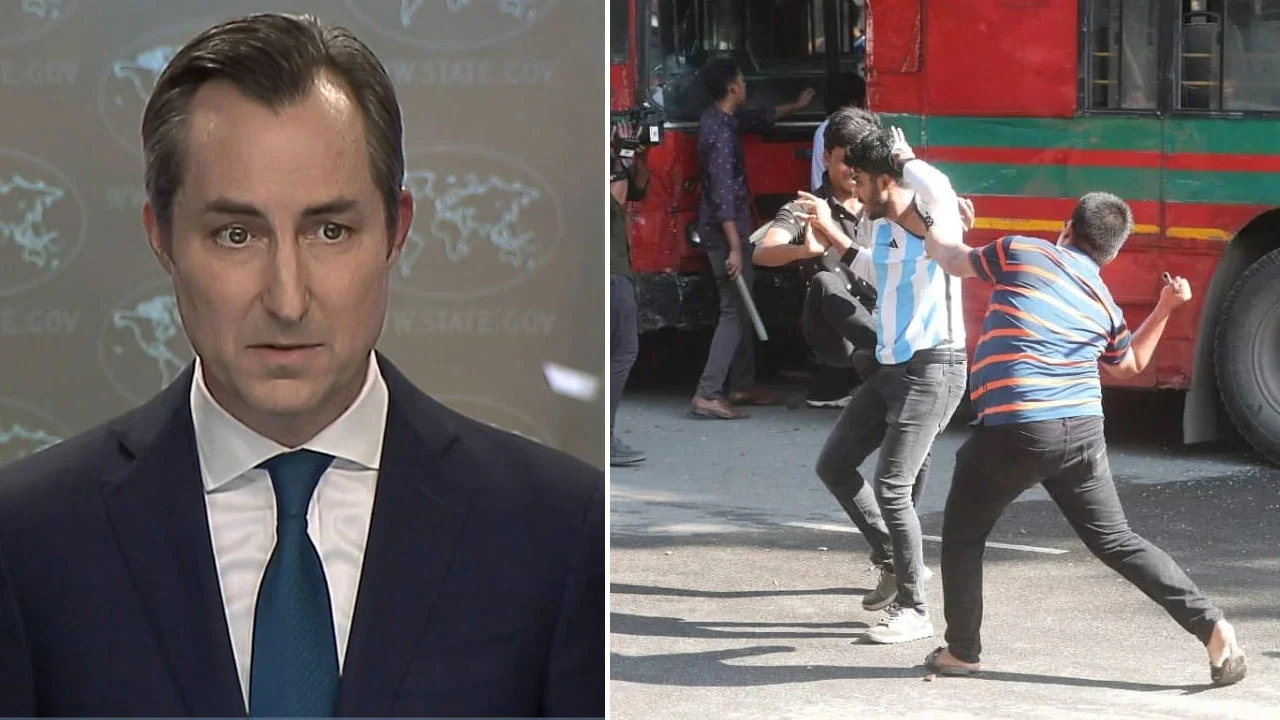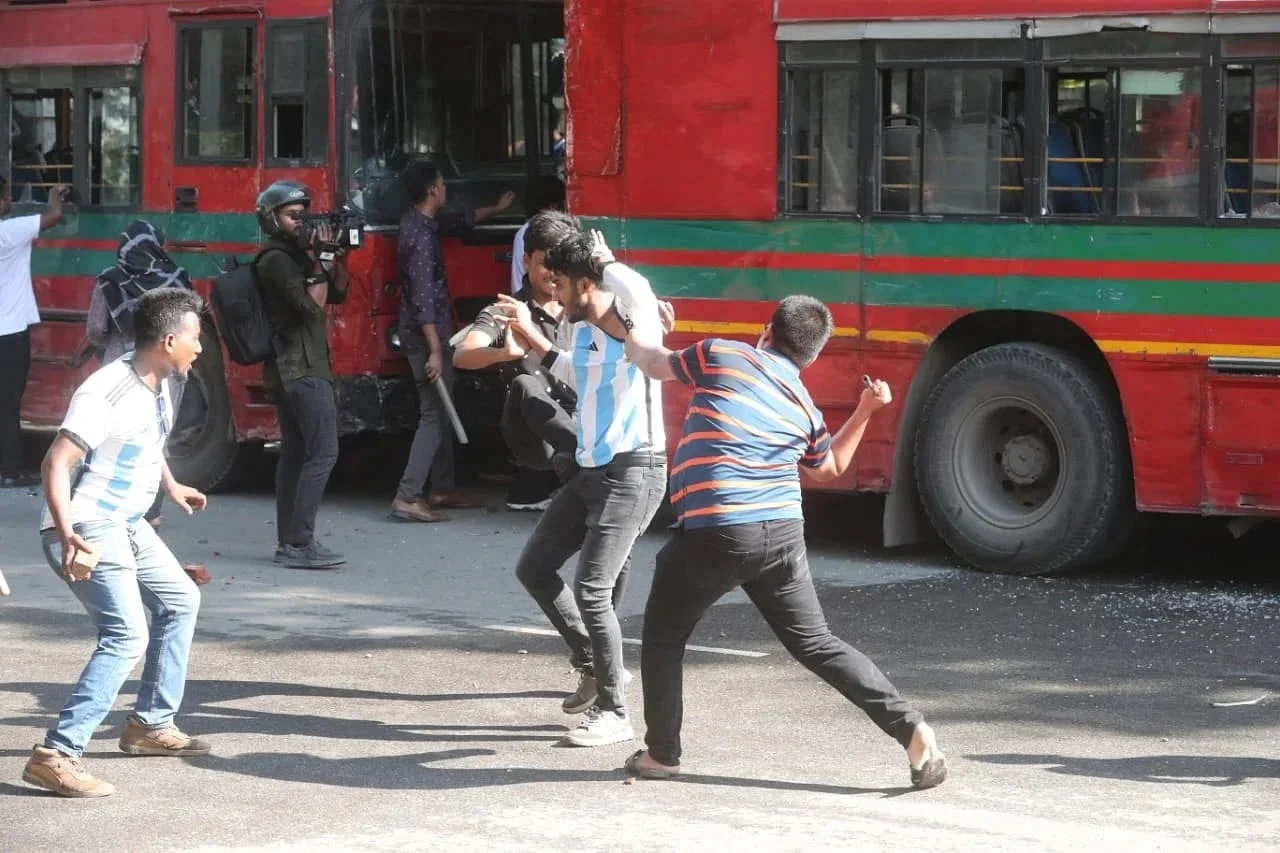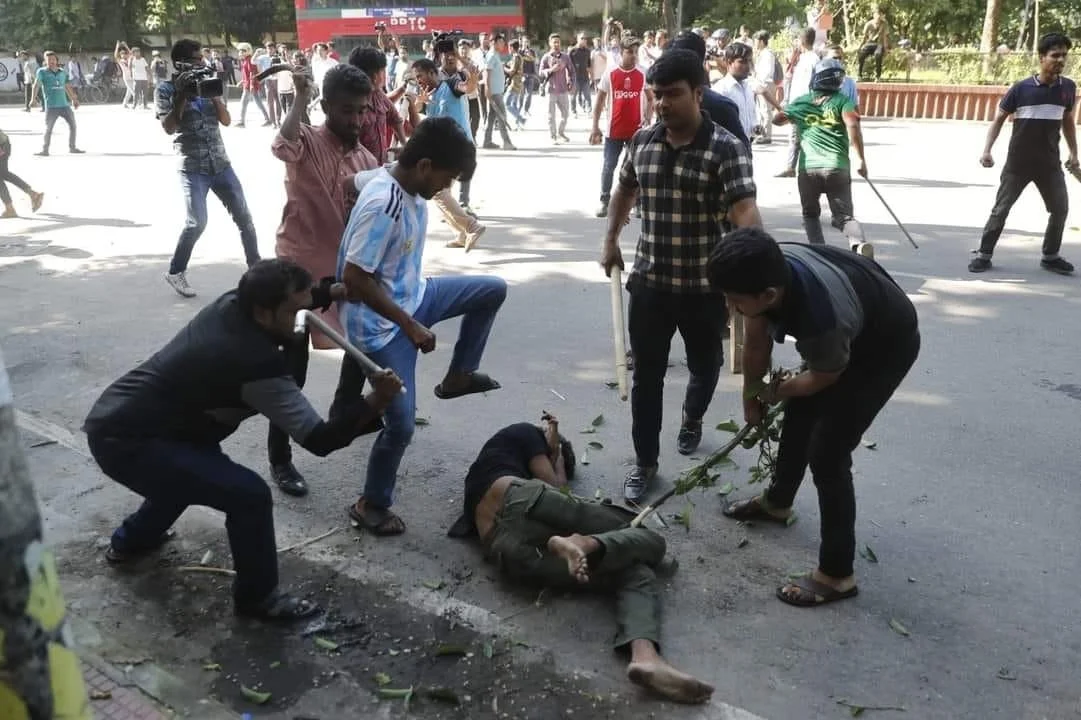US Condemns Attacks on Quota Reform Protesters in Bangladesh
Share on:

The United States has condemned the attacks on students protesting for quota reforms in government jobs in Bangladesh. The US is also closely monitoring the ongoing situation. This statement was made by US State Department spokesman Matthew Miller in response to a journalist's question during a regular press conference on Monday, July 15.
During the briefing, a journalist inquired about the movement and the attacks on students demanding merit-based recruitment and the cancellation of quotas in government jobs in Bangladesh. The journalist highlighted that students have been protesting for several days and were attacked by the Bangladesh Chhatra League, resulting in around 500 injuries. Additionally, it was reported that injured students were attacked in hospital emergency departments by BCL leaders and activists.
Matthew Miller responded by acknowledging the widespread student protests across various locations, including Dhaka. He confirmed that hundreds were injured and two were killed in the attacks. "The United States is aware of the widespread student protests in various places, including Dhaka, the capital of Bangladesh. Hundreds of people were injured and two were killed in the attack. We are monitoring this matter," he said.

He emphasized the importance of freedom of expression and peaceful assembly as essential foundations for any thriving democracy and condemned any form of violence against peaceful protesters. Miller also expressed condolences to the victims and their families.
The protests began following comments made by Prime Minister Sheikh Hasina during a press conference on her recent visit to China. In response to a question about the quota reform movement, she questioned, "Why is there so much anger about the liberation war? The grandchildren of freedom fighters will get nothing, so will the grandchildren of Razakar get everything?" This statement sparked outrage among students, who interpreted it as labeling them as 'children or grandchildren of Razakar.'
The protests started on Sunday night with students from Dhaka University (DU) leading the charge. Female students from Rokeya Hall initiated a procession, chanting, "Tumi ke ami ke, Razakar Razakar." Male and female students from other university halls joined, protesting in front of the Raju sculpture at TSC. Similar protests occurred simultaneously at universities in Chittagong and Rajshahi.

The situation escalated on Monday, with hundreds of protesters gathering at Raju Bhaskar in DU, demanding the Prime Minister retract her statement. The controversial slogan, "Tumi ke ami ke, Razakar Razakar," drew significant discussion and criticism, with Prime Minister Sheikh Hasina and Bridges Minister Obaidul Quader condemning the language used.
Tensions rose as the Chhatra League mobilized on campuses, leading to violent clashes. Protesters and BCL members engaged in stone-throwing and physical confrontations, resulting in numerous injuries. The violence intensified, with BCL members attacking protesters with sticks, leaving many injured and hospitalized.
Similar clashes and protests occurred at Chittagong University and other universities across the country, including Rajshahi, Comilla, and Khulna. Students blocked roads and highways, leading to widespread disruption.
The situation remains tense as the US and other international observers continue to monitor developments.

